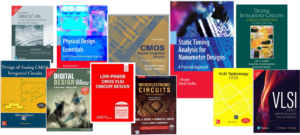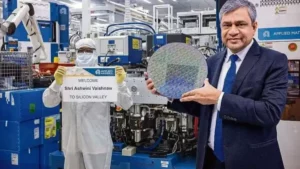Introduction:
In the competitive landscape of Indian education, engineering colleges are categorized into Tier 1, Tier 2, or Tier 3 based on various parameters such as infrastructure, faculty expertise, research output, and academic performance.
Tier 1 colleges are often considered the cream of the crop, providing students with exceptional opportunities and exposure.
However, Tier 3 engineering colleges in India may not have the same resources and reputation as their Tier 1 counterparts. Despite this, they can still provide quality education and prepare students for Tier 1 college opportunities.
In this blog post, we’ll explore comprehensive strategies that Tier 3 colleges can adopt to bridge the gap and empower their students for success in the competitive engineering landscape.
Follow us on Linkedin for everything around Semiconductors & AI
1. Attracting Expertise – Engage Faculty from Premier Institutes:
We know you can’t hire faculties of Top tiers, but you can invite top of the funnel for a short stay. For a 2 week course.
Bringing in faculty members from prestigious institutions like IITs and NITs for short-term stays can infuse Tier 3 colleges with advanced teaching methodologies and contemporary knowledge.
These experts can conduct short courses & workshops, share their experiences, and expose students to the high standards expected in top-tier engineering colleges.
Example: A Tier 3 college in Pune invites a professor from IIT Bombay to conduct a workshop on modern programming languages and emerging technologies. Students get hands-on experience and gain insights into cutting-edge practices.
Read more: Explore VLSI fabrication at IIT Delhi with INUP
2. Industry Integration for Practical Experience:
We know you can’t get top companies for placements but you can get local ones for an internship(Even if unpaid)
Collaborating with local and global companies to provide internships allows students to apply theoretical knowledge in real-world scenarios. Exposure to industry practices and expectations enhances their employability and prepares them for the challenges of Tier 1 institutions.
Example: A Tier 3 college in Bengaluru partners with local tech companies for summer internships. Students work on software development projects and gain exposure to industry tools and practices, making them more competitive for Tier 1 internships.
Read more: Make Your Own IC in India’s Only 180 nm Fab at SCL
3. Project-Based Learning – Beyond Textbooks:
We understand that Tier 3 colleges might face constraints in affording extensive infrastructure, including top-notch labs. However, an alternative approach is to encourage students to leverage online resources and engage in open-source learning.
Encouraging students to work on projects, whether contributing to open-source initiatives or solving industry-related problems, fosters critical thinking and practical skills. This approach emphasizes application-oriented learning rather than rote memorization.
Example: A Tier 3 college in Chennai initiates a hackathon where students collaborate to create an innovative solution for a social issue. This not only enhances their problem-solving abilities but also showcases their creativity to potential Tier 1 recruiters.
Read more: Become a VLSI Designer : Free Tools, without any Degree
4. Facilitating Exposure to Leading Institutions:
We know you can’t give them funding top research but you can ask your faculties to build relations with top people and make joint projects.
Proactively encouraging faculties to establish connections with top colleges for collaborative projects or inviting guest lectures from renowned professors helps students understand the academic rigor and expectations of Tier 1 institutions.
Example: A Tier 3 college in Delhi partners with an IIT for a joint research project. Students work with IIT professors, gaining valuable exposure to advanced research methodologies and academic standards.
Read more: 5 steps to get into VLSI Product companies from Tier 3 college
5. LinkedIn and Networking Skills:
We know you can’t get Sundar Pichai on Campus, but you can teach them how to reach him in the digital world.
Providing workshops on LinkedIn usage and effective networking can empower students to connect with professionals and discover job opportunities. Practical guidance on profile optimization and networking etiquette is crucial.
Example: A Tier 3 college in Hyderabad conducts a LinkedIn workshop where students learn to optimize their profiles, connect with alumni, and explore job opportunities in their respective fields.
Read more: Why LinkedIn is a Must-Have for Students and Freshers
6. Effective Communication:
Only if they learn to present their ideas well, will the quality of the idea truly matter. Therefore, offering communication workshops, debates, and mock interview sessions is essential. These activities can significantly enhance students’ verbal and written communication skills, a crucial aspect often overlooked in traditional academic settings.
Example: A Tier 3 college in Mumbai organizes a public speaking competition, encouraging students to present their ideas confidently and articulate their thoughts effectively.
7. Job Research and Company Analysis:
If jobs don’t find them, let them find jobs. There are methods to do that.
Introducing a career guidance cell that helps students research jobs and analyze potential employers can aid in making informed career decisions. Teaching students to decode job descriptions and align their skills accordingly is essential.
Example: A Tier 3 college in Kolkata hosts company research webinars where industry experts guide students on analyzing company cultures and career growth prospects.
Read more: 17 step method to land your first job In VLSI
8. Identifying Opportunities and Growth:
What should they learn which is hot and in demand.
Conducting seminars on industry trends and emerging career paths helps students understand where the job market is headed. Encouraging students to attend job fairs and networking events facilitates exposure to a multitude of opportunities.
Example: A Tier 3 college in Bengaluru organizes an industry trends seminar, featuring HR professionals who provide insights into upcoming job roles and in-demand skills.
9. First Principle Thinking:
If by the time they graduate, they learn how to think- that’s a success. Integrating first principle thinking into problem-solving workshops and classroom discussions encourages students to break down complex problems into fundamental principles. This approach promotes innovative and efficient solutions.
Example: A Tier 3 college in Pune hosts a workshop on first principle thinking, challenging students to solve engineering problems from scratch, enhancing their analytical skills.
Read more: What the Hell is First Principle thinking that can solve any problem?
If you are a tier 2/3 college and looking to build a programme around success, send us a mail to Techovedas@gmail.com.
Conclusion:
Tier 3 engineering colleges can prepare students for Tier 1 opportunities by engaging experts, collaborating with industries, promoting project-based learning, facilitating exposure to leading institutions, and imparting practical skills. Equipping students with a holistic skill set is crucial for their success in the competitive engineering field.




